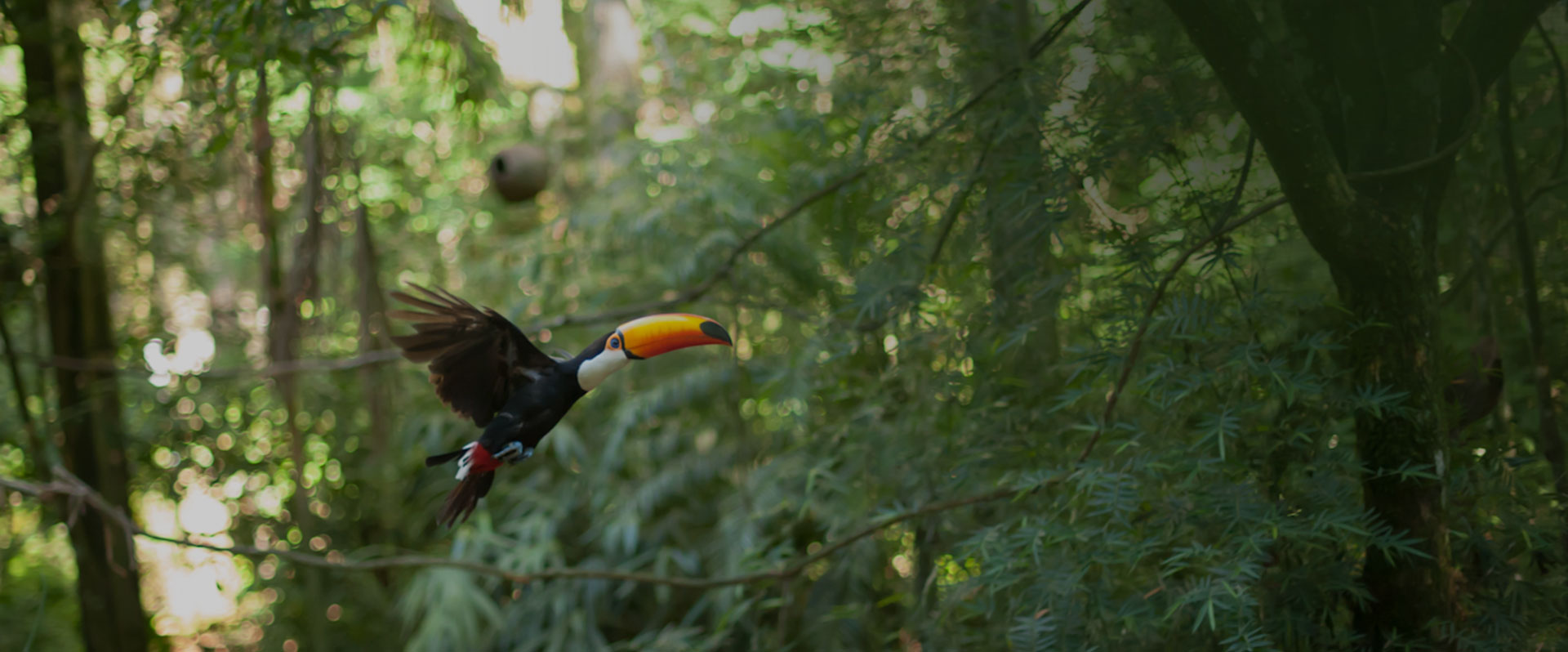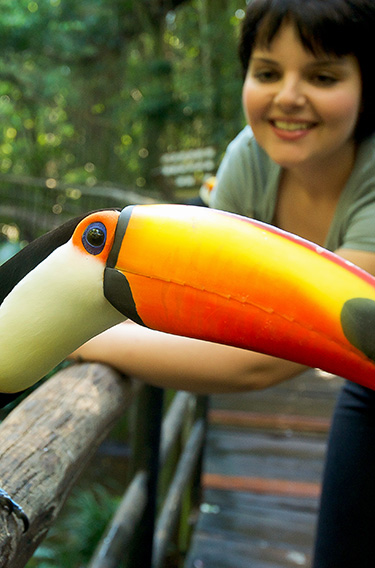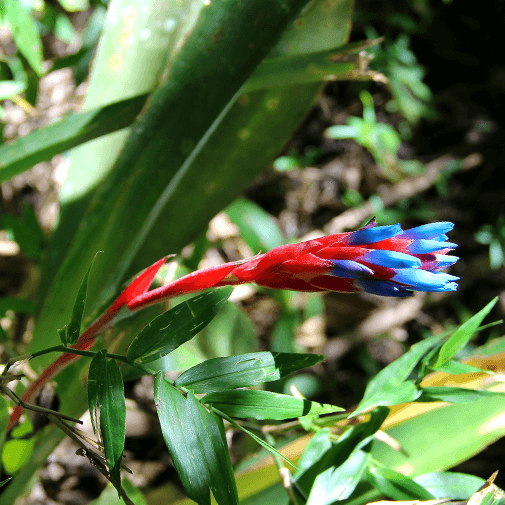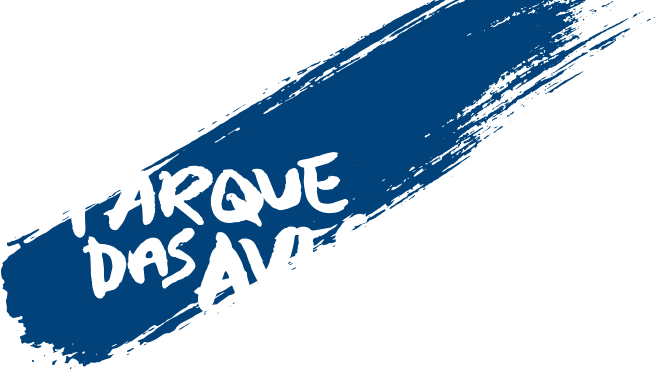


Education for Conservation
Parque das Aves as an Integrated Conservation Center of Atlantic Rainforest Species develops actions of research, conservation, leisure, and education, contributing to the connection of its visitors with nature. Believing that education is essential in the species conservation process, the institution has the Environmental Education Department that aims to contribute to the connection of the visitors with the Atlantic Rainforest in order to allow their engagement and changes in attitudes. The team of educators and environmental mediators develops activities for various publics always with a theoretical foundation of critical environmental education and of Social Sciences, resulting in a strong integration between research, theory, and practice in the field of education.

 |
EDUCATION FOR CONSERVATION |

Parque das Aves as an Integrated Conservation Center of Atlantic Rainforest Species develops actions of research, conservation, leisure, and education, contributing to the connection of its visitors with nature. Believing that education is essential in the species conservation process, the institution has the Environmental Education Department that aims to contribute to the connection of the visitors with the Atlantic Rainforest in order to allow their engagement and changes in attitudes. The team of educators and environmental mediators develops activities for various publics always with a theoretical foundation of critical environmental education and of Social Sciences, resulting in a strong integration between research, theory, and practice in the field of education.
Parque das Aves receives 830,000 visitors per year, and among them is an average of 30,000 students from school groups entering into special programs of environmental education, which are free for public schools in the region. We develop conservation education and communication programs based on research and we measure the impact of the experience at Parque das Aves, its education programs, and its communication.

To get in touch with our team, send an e-mail to [email protected]
Learn more about our work in Education for Conservation.
CLICK ON THE LINKS BESIDE AND LEARN MORE
CLICK ON THE LINKS BELOW AND LEARN MORE
HOME PROJECTS
> BLUE-FRONTED AMAZON
> RED-BROWED AMAZON
> BIRDS OF IGUAÇU
> PARTNERSHIPS
> SHELTER AND RECOVERY
> REHABILLITATION
> REPRODUCTIVE MANAGEMENT
> REPRODUCTION FOR CONSERVATION
> BEHAVIOR AND WELFARE
> NUTRITION
> STRATEGIC COMMUNICATION FOR CONSERVATION
> AMBIENTAL EDUCATION AND SOCIAL SCIENCE
SOS FAUNA
RED-SPECTACLED AMAZON PARROT PROJECT
PARROTS AT THE GRAMADÃO SQUARE
> RESEARCH
> THE VETERINARY SECTOR AND THE ATLANTIC RAINFOREST BIRDS
> CONSERVATION BIOLOGY, ZOOLOGY, AND VETERINARIAN IN THE FIELD
 Every day from 8:30am to 4:30pm
Every day from 8:30am to 4:30pm Prices
Prices


